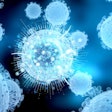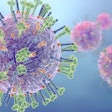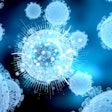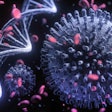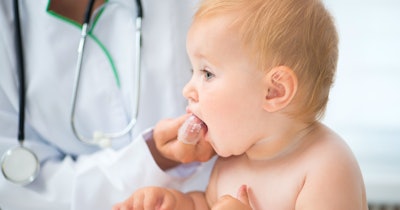
Many academic institutions have implemented infection control and prevention protocols, including regular asymptomatic self-testing, in response to the COVID-19 pandemic.
However, reporting has been sparse on the outcomes of mandatory surveillance testing programs at academic dental institutions that offer direct patient-facing clinical care.
According to a study published on Tuesday in JAMA Network Open, when intensive infection control measures were implemented, such as RT-PCR testing for surveillance, involvement in dental clinical activities did not pose additional risk of SARS-CoV-2 infection compared with other in-person activities.
SARS-CoV-2 infection is a major concern in a dental office because the dentist and patient are in such close proximity. In particular, proximity to the patient’s oral cavity and the production of aerosols and droplets during dental procedures pose a risk of transmission.
Because of the high percentage of asymptomatic SARS-CoV-2 infections and their potential transmission risk, dental schools have applied public and local government guidelines, among other measures. They have assessed testing feasibility, and considered current epidemiological data to ensure faculty, staff, student, and patient safety, for example.
Many institutions have implemented RT-PCR testing at varying frequencies for asymptomatic surveillance of their community, to help control the spread of COVID-19. The Harvard School of Dental Medicine, which offers direct patient care within university-operated facilities, used surveillance testing and contact tracing to safely reopen when in-person activities resumed during the pandemic the in the fall of 2020.
The authors of the JAMA study conducted a retrospective cohort study using SARS-CoV-2 self-testing data from a surveillance program at the school. They assessed SARS-CoV-2 positivity rates and the potential association of test positivity with individual-level characteristics such as age, sex, and role.
Test results were obtained between August 24, 2020, and February 28, 2022, from students, faculty, and staff members, and the research group used univariate analyses and a Bayesian multilevel logistic regression model to assess the association of individual characteristics with test positivity.
The “findings suggest that involvement in patient-facing dental clinical activities did not pose additional risk of SARS-CoV-2 infection compared with other in-person activities in the presence of intensive control measures,” the authors wrote.
The study has some limitations including that the results may not be generalizable to other organizations implementing mandatory SARS-CoV-2 testing, the authors noted.
“Notwithstanding these limitations, the ability to better understand the interplay of a professional education program delivering clinical care and implications on COVID-19 transmission is a benefit [to] academic clinical settings,” they added.










